Kings Row

Brief Synopsis
Cast & Crew
Sam Wood
Ann Sheridan
Robert Cummings
Ronald Reagan
Betty Field
Charles Coburn
Film Details
Technical Specs

Synopsis
Growing up together in the late nineteenth century in the small town of Kings Row are Parris Mitchell, who lives with his French grandmother; Cassandra Tower, the misunderstood daughter of Dr. Alexander Tower; wealthy orphan Drake McHugh; Louise Gordon, the daughter of sadistic Dr. Henry Gordon, who performs operations without anesthetic; and Randy Monaghan, whose father is a railroad worker. Although the other children in town avoid Cassie, whose mother is rumored to be locked in an upstairs room of the Tower residence, Parris is attracted to her and is her only friend. Eventually Tower decides to keep Cassie at home and Parris does not see her again. Several years later, in 1890, Parris begins his medical studies under Dr. Tower's tutelage. His best friend, Drake, intends to marry Louise despite the disapproval of her rigidly moralistic father. Louise, however, does not have the strength to defy her parents. One day, when Parris returns to the Towers' to retrieve his notebooks, Cassie meets him. She refuses to explain why she can never see her friends, and intrigued by her wildness, Parris kisses her. It is late when Parris leaves, and to save Cassie's reputation, he spends the night with Drake. Subsequently, Parris and Cassie continue to see one another at Drake's. Meanwhile, Parris' grandmother has become very ill. Although Parris is concerned about Gordon's seeming mistreatment of his patients, Tower assures him that the doctor's abilities are adequate to treat his grandmother, and a short time later she dies from incurable cancer. Parris becomes interested in psychiatry and decides to continue his studies abroad. He proposes marriage to Cassie, who runs from the room in distress. Later she visits him at Drake's and begs him to take her with him, but again, runs away. The next day, Parris learns that Tower has poisoned Cassie and shot himself, leaving everything to him. Tower's notebook reveals that he killed Cassie, who was insane like her mother, to prevent Parris from ruining his life by marrying her. By 1900, Parris is in Vienna studying psychiatry, while in Kings Row, Drake's plans to build houses are encouraged by his new sweetheart, Randy Monaghan. Randy suggests that he build homes for workers rather than the rich, but when his trust fund is stolen by a dishonest bank officer, Drake is forced to work for the railroad. He is accidentally crushed by a boxcar and Gordon is called to treat him. Gordon's hatred of Drake prompts him to amputate his legs needlessly. Parris, meanwhile, has learned of the events and, after Randy and Drake marry, offers them money to start over. Later, Parris takes a leave of absence from his studies to visit Kings Row and decides to remain there when he learns that because of Gordon's death, the town needs a doctor. At Mrs. Gordon's request, he visits Louise, who has not left her room since Drake's marriage. Louise reveals that her father amputated Drake's legs because he believed it was his duty to punish wickedness. This is confirmed by Elise Sandor and her father, who now live in Parris' old house. At first, Parris wants to keep the truth from Drake, but instead, persuaded by Elise, confronts him with the facts. Unexpectedly, Drake is relieved, and is finally able to accept his life. Having cured his friend, Parris is now free to marry Elise.

Director

Sam Wood
Cast
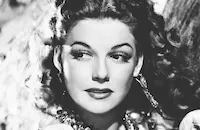
Ann Sheridan

Robert Cummings
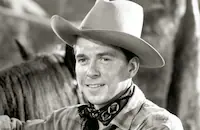
Ronald Reagan

Betty Field

Charles Coburn

Claude Rains

Judith Anderson

Nancy Coleman

Kaaren Verne

Maria Ouspenskaya
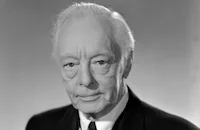
Harry Davenport

Ernest Cossart
Ilka Gruning
Pat Moriarity

Minor Watson

Ludwig Stossel
Erwin Kalser
Egon Brecher

Ann Todd

Scotty Beckett
Douglas Croft
Mary Thomas
Julie Warren
Mary Scott
Joan Duvalle
Danny Jackson
Henry Blair
Leah Baird
Eden Gray
Bertha Powell
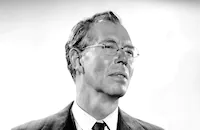
Walter Baldwin
Frank Mayo

Jack Mower
Thomas W. Ross
Frank Milan
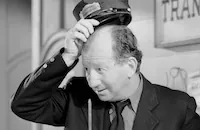
Hank Mann
Fred Kelsey
Herbert Heywood
Emory Parnell
Elizabeth Valentine
Ludwig Hardt
Hermine Sterler
Hattie Noel
Crew
Wesley Anderson
G. W. Berntsen
Robert Burks
Eugene Busch
Ralph Dawson
Emmett Emerson
Leo F. Forbstein
Hugo Friedhofer
Martha Giddings
George Hopkins
James Wong Howe
Cliff Hutchinson
Don King
Erich Wolfgang Korngold
Madison Lacy
Robert B. Lee
David Lewis
Rydo Loshak
Frank Mattison
William Cameron Menzies
Orry-kelly
Dutch Reifsneider
William Reinhold
Edward Rike
Casey Robinson
Sherry Shourds
Helen Stinton
Joe Stinton
Carl Jules Weil
Perc Westmore
Warren Yaple

Photo Collections
Videos
Movie Clip




Trailer
Hosted Intro
Film Details
Technical Specs

Award Nominations
Best Cinematography
Best Director
Best Picture
Articles
Kings Row
But the film gradually reveals that all is not idyllic in this sleepy American town. Beneath the film's surface of quaint nostalgia and small-town melodrama appear signs of widespread malaise, revealing the community of Kings Row as a melting pot of gossip, jealousy, mental illness, possessive parents, class-rivalry, murder and suicide.
Robert Cummings stars as Parris Mitchell, an ambitious youth who begins the study of psychiatry under mentor Dr. Alexander Tower (Claude Rains). Parris's pal, Drake McHugh (Ronald Reagan), is a small-town dandy who chooses to live off his trust fund while romancing several local girls, including Louise Gordon (Nancy Coleman), daughter of the town physician (Charles Coburn). The propriety of Louise and Drake's relationship is carefully guarded by Mrs. Gordon (Dame Judith Anderson) who seeks to preserve her daughter's reputation, even at the expense of her happiness.
Best remembered as the grim Mrs. Danvers in Alfred Hitchcock's Rebecca (1940), Anderson was perfectly cast as Mrs. Gordon. With her high starched collars and elaborate lace finery, she comes to represent the Victorian mindset at its most repressive and inflexible.
Eventually the Gordons' bottled-up resentment toward Drake is released when the young lothario is injured in a train accident and the kindly small-town doctor spitefully amputates both of the boy's legs. This tragic plot twist provided Reagan with the greatest acting opportunity of his career, and the lines he uttered upon discovering his mutilated body later became the title of his autobiography, "Where's the rest of me?"
It was initially believed that Henry Bellamann's novel could never be passed by the censors. Joseph Breen, of the Hays Office, wrote the producers that "To attempt to translate such a story to the screen, even though it be re-written to conform to the provisions of the Production Code is, in our judgment, a very questionable undertaking from the standpoint of the good and welfare of this industry." Thanks to the resourcefulness of screenwriter Casey Robinson (who judiciously removed the novel's suggestions of incest, homosexuality and euthanasia), Kings Row was finally able to reach the screen without sacrificing the integrity of its troubling message, earning Academy Award nominations for Best Picture, Best Director and James Wong Howe's "Midwestern Gothic" cinematography.
Director: Sam Wood
Producer: Hal B. Wallis
Screenplay: Casey Robinson
Based on the novel by Henry Bellamann
Cinematography: James Wong Howe
Production Design: William Cameron Menzies
Music: Erich Wolfgang Korngold
Cast: Ann Sheridan (Randy Monoghan), Robert Cummings (Parris Mitchell), Ronald Reagan (Drake McHugh), Claude Rains (Dr. Alexander Tower), Betty Field (Cassandra Tower), Charles Coburn (Dr. Henry Gordon), Judith Anderson (Mrs. Harriet Gordon), Nancy Coleman (Louise Gordon).
BW-127m. Closed captioning. Descriptive Video.
by Bret Wood

Kings Row
Kings Row - Ronald Reagan Loses His Legs - "Where's the rest of me?" - in KINGS ROW on DVD
An even darker vision than Thorton Wilder's Our Town (also directed by the formalistic Sam Wood), Kings Row conceives of evil forces lurking behind the staid facades of the turn-of-the-century American Midwest. Näive interpretations of mental illness from the original book are retained in Casey Robinson's screenplay, as sexual repression drives parents to destroy their own offspring. All this in a town with a posted motto that reads, "A good place to raise children."
Kings Row is an odd movie to come out just as WWII began, dealing as it does with unspoken class barriers, promiscuity, horrifying death pacts and willful mutilation. It's also an extremely affecting drama that pairs Ann Sheridan with a surprisingly effective Ronald Reagan, in what is easily the best role of his film career. It's been reported that the studio delayed Kings Row by a year because its downbeat story might be too depressing for audiences already disturbed by the war.
Synopsis: A group of spirited kids grow up in Kings Row, a town dominated by 'respectable' families. Drake McHugh (Ronald Reagan) is the good-natured hellion of the bunch and considered a wastrel because he's content to live on his trust money. He's loyal to his best friend Parris Mitchell (Robert Cummings), a piano student who wants to become a doctor and adores his sickly grandmother Madame Marie von Eln (Maria Ouspenskaya). Tomboy Randy Monaghan (Ann Sheridan) has the hardest path to follow, as she's from the wrong side of the tracks and doesn't want to be considered one of McHugh's 'easy' girls, even though she loves him dearly. Dark broodings overshadow King's Row. Parris takes pre-med instruction from the mysterious Doctor Alexander Q. Tower (Claude Rains), who has inexplicably withdrawn his emotional daughter Cassie (Betty Field) from school and keeps her sequestered in their house. Worse, Parris intuits that Dr. Henry Gordon (Charles Coburn) is really a sadistic fiend who operates without anesthesia on patients he considers 'sinful.' Gordon's daughter Louise (Nancy Coleman) is becoming neurotic from the Victorian repression enforced by her father and mother (Judith Anderson)...and is likewise made a veritable prisoner to keep her from the 'evil' represented by Drake McHugh.
Kings Row is prime material for rediscovery by a new generation. The first thing that will knock younger viewers for a loop is the bombastic Erich Wolfgang Korngold music score, which clearly provided the inspiration both in form and specific orchestration for John Williams' Star Wars theme. In the past, the overpowering music often seemed jarringly overdone, especially in certain key moments. When young Parris Mitchell crosses a whitewashed plank fence stile and comes back an adult, the main theme crashes in as if it were the Resurrection. Today, Korngold's delirious score will now probably seem much less extreme.
The film is dominated by two additional artistic giants. Cameraman James Wong, aided by Robert Burks' special effects, creates an evocative world of 1900. Especially well captured are the frantic moods around the film's 'mad women' Cassandra Tower and Louise Gordon, where choice of lenses and diffusion add to the sense of frightened spirits choked by forces beyond their control. The overall look of the film is the work of William Cameron Menzies, the acclaimed designer of, among many other great pictures, Gone with the Wind and For Whom the Bell Tolls. Menzies' contributes more than just his signature plank fences disappearing over rolling hills; the blocking of every shot reflects his designer's eye.
Kings Row's high drama works itself out in a misleadingly ordinary-looking town. Audiences in 1942 must have thought it hysterical chaos, one of those movies where "one has to read the book" to figure out what was going on. Although edgy material like the motivation of Charles Coburn's sadistic doctor is thoroughly explained, the script is beholden to outmoded, literal interpretations of the teachings of Sigmund Freud. Parris Mitchell goes to Vienna to learn the new field of psychiatry and returns to King's Row armed with the wisdom of great minds, which surfaces in lofty statements and quotes from poetry.
Parris is the only one to see through the older generation dominated by warped father figures. Old, mad Dr. Gordon has ordained himself as the punishing hand of God, smiting transgressors with his scalpel. Even the benign Dr. Tower labors under the weight of bad science and guilt, believing that his daughter Cassie has inherited his wife's mental affliction. Tower's brutal attempts to keep Cassie away from the world result in exactly the madness he feared. It's a self-generated Gothic curse straight out of Edgar Allan Poe.
Opposing this evil are the two friends Parris and Drake. Parris is the model student and devoted grandson respected by all, whereas Drake's cocky attitude and freewheeling reputation with the girls has set most of the town against him. (spoiler) Drake's freedom and lack of piety bring down the wrath of his elders, first when a banker steals his inheritance, and second when he falls into the clutches of the man who most hates him, the vindictive Dr. Gordon. Drake manfully faces his sudden poverty, and even saves Parris from trouble by taking unnecessary blame upon himself. But Dr. Gordon is able to cut short Drake's pride and his health, and Randy and Parris have to rally to help him pull himself together again.
Kings Row overflows with unusual characters. Robert Cummings is much maligned for his "gee whiz" take on the Parris Mitchell role, an approach that's exactly right for the character. Ann Sheridan evokes hopes for the future, especially in a near-perfect scene where she convinces potential real estate developer Drake to consider building affordable family housing instead of ritzy estates (a theme borrowed for Frank Capra's It's a Wonderful Life). The usually so-so Ronald Reagan has a tour-de-force character arc. He's a smug rake in a horse-drawn buggy, then a stand-up friend, a humbled job seeker and finally a bed-ridden cripple convinced that life has completely abandoned him. Reagan's famous line is a screamed, "Where's the rest of me?!" but what we remember is that he holds up his end of the film, and much more. Critics in 1942 were surprised when the "lightweight" Reagan and Sheridan did so well.
The rest of the picture is impeccably cast. Betty Field has only a few scenes but chills our blood with her intensely disturbed Cassandra Tower. Claude Rains is properly secretive as Parris' well-meaning mentor. Nancy Coleman (Edge of Darkness) defies her parents with wild-eyed stares, realizing that the pitiless Charles Coburn and Judith Anderson would rather she be dead than have the family's good name tarnished. As Parris' sentimentalized grandmother Maria Ouspenskaya probably has a bit too much screen time. Relative newcomer Kaaren Verne is idealized as Parris' true love, a convenient vision of perfection. Verne's character comes from Vienna and so understands his appreciation of progressive continental ideas. But when Parris first sees her he mistakes her for the ghost of his childhood sweetheart Cassie. Verne lives in Parris' old house and even sleeps in Parris' own childhood bedroom, making us wonder what Freud would say.
Kings Row has more than its share of dated and awkward lines: "I don't know about those things, I'm just a woman." On the other hand, the film shouldn't have to apologize for its over-emphatic emotions. Both Ann Sheridan and Bob Cummings have scenes that end in huge close-up, sharing ecstatic, transcendent emotions with the camera. Sheridan even murmurs a prayer. These expressionistic moments are really the high points of the film ... and encourage the nostalgic idea that once upon a time there were people who could be transformed by the honesty of their emotions.
Warners' DVD of Kings Row presents the B&W flat movie in a good transfer. In a few scenes the image is a bit unsteady (shrinkage?) but the newly buffed mono soundtrack is a stunner, revealing wonderful emotional details in the Korngold score ...see the movie more than twice and the score will become the motivation to see/hear it again.
Instead of a trailer we get five brief teasers, each highlighting a key character line from the young talent. One short subject is simply the U.S. Marine Band playing in the nation's capitol, directed by Jean Negulesco. The cartoon is a Merrie Melody called Fox Pop. I have to admit I was hoping for a cartoon featuring a child-like mouse character with a be-ribboned hat, who always acts meek and wide-eyed. That character always reminds me of the "young Parris" in the movie, even though it's probably based on something else entirely.
For more information about Kings Row, visit Warner Video. To order Kings Row, go to TCM Shopping.
by Glenn Erickson
Kings Row - Ronald Reagan Loses His Legs - "Where's the rest of me?" - in KINGS ROW on DVD
Ronald Reagan, 1911-2004 - TCM Remembers Ronald Reagan
Ronald Reagan, the actor turned elected official whose fascinating career saw him develop as a contract player for Warner Brothers studios, to a politician who fulfilled his ambitions by becoming the 40th President of the United States, died at his home in Los Angeles on June 5 after a long battle with Alzheimer's disease. He was 93.
He was born Ronald Wilson Reagan on February 6, 1911 in Tampico, Illinois to John and Nelle Reagan. When Reagan was nine, his family settled down in the small community of Dixon, about 100 miles west of Chicago. After high school, Reagan enrolled in Eureka College, a small Christian school near Peoria. He graduated in 1932 with a degree in Economics, and pursued a career in broadcasting. His first gig was as a part-time announcer at WOC in Davenport, Iowa. Within a year, WOC had merged with its big-sister station, WHO in Des Moines, and Reagan was hired as a sports announcer.
In the spring of 1937, Reagan drove to Southern California to catch the Chicago Cubs in spring training on Santa Catalina Island. While he was in California, he wrangled a screen test and signed a contract for $200 a week with Warner Brothers. His film debut was rather inauspicious; he portrayed a radio announcer in an innocuous comedy Love is on the Air (1937). He made a few more "B" programmers like Hollywood Hotel (also 1937), and Girls on Probation (1938), before getting his first prominent role opposite Bette Davis in the popular tearjerker, Dark Victory (1939).
Although he seldom got credit for being a good actor, there was no denying that Reagan held his own given the right material: Knute Rockne, All American as the doomed Notre Dame football hero George "The Gipper" Gipp, where he delivered the film's immortal line "Win one for the Gipper!"; Santa Fe Trail in which he ably supports Errol Flynn in one of the boxoffice hits of its era (both 1940); Kings Row (1941), featuring one of his finest performances as a small-town playboy whose legs are amputated by a careless surgeon; and Desperate Journey (1942) where he again supported Flynn in an exciting action picture.
Due to his poor eyesight, Reagan didn't see any action in World War II, so the studio heads assigned him to star in a series of patriotic films produced by the First Motion Picture Unit of the Army Air Forces in Culver City. Between 1942-45, Reagan starred in over 400 of these films. After the war, Reagan still found some good roles: The Voice of the Turtle (1947) proved he had a deft hand at light comedy opposite Eleanor Parker; The Hasty Heart (1949) offered another underrated performance as he ably portrayed the Yank in John Patrick's much heralded wartime play; and Storm Warning (1950) was a slick melodrama that cast Reagan as a crusading District Attorney determined to bring the KKK in a small southern town, with the help of Doris Day and Ginger Rogers!
It was around this time that Reagan became involved in politics. In 1947, he began a five-year term as president of the Screen Actors Guild (SAG), and testified in October of that year before the newly formed House Un-American Activities Committee (HUAC). He identified suspected Communists Larry Parks, Howard Da Silva and Alexander Knox, all of whom were subsequently called to testify, and subsequently blacklisted. Later records showed Reagan was so concerned about the Communist influence in Hollywood, that he became an FBI informer.
As Reagan became steeped in his political career, his parts throughout the '50s became inferior: the notorious Bedtime for Bonzo (1951); the coy "sex" comedy She's Working Her Way Through College (1952) that cast him as a college professor who romances a stripper! (Virginia Mayo); Cattle Queen of Montana (1955), a sluggish Western that even the redoubtable Barbara Stanwyck couldn't save; and finally Hellcats of the Navy (1957), a stodgy war picture that would be his only film that co-starred his wife Nancy (Davis).
Television offered some salvation. For eight years, (1954-62), Reagan served as the host of General Electric Theater, a televised series of dramas. He also found a niche as GE's goodwill ambassador to employees and to civic and business groups around the country, furthering his taste and honing his craft as a public official. By the mid '60s, Reagan would move into politics entirely, save for one last film, the thrilling The Killers (1964), Reagan's only known villainous role, as a murderous gangster. That same year, he actively campaigned for Republican Presidential candidate Barry Goldwater, although Goldwater lost to Lyndon B. Johnson.
Reagan whose profile was riding high, had cemented his future as a successful politician. In 1966, he ran against incumbent Governor Pat Brown for the state of California and won, serving successfully for two terms until 1974.
Reagan began an all-out, two-year drive to wrest the 1976 nomination from incumbent Gerald R. Ford, an appointed vice president who became president on the resignation of Nixon. Reagan fell short by a handful of delegates to the Republican national convention. But Ford lost to Jimmy Carter, and Reagan became the front-runner to challenge Carter in 1980. After defeating Carter, Reagan held two terms as President of the United States (1981-89). After his second term was over, he retired quietly in California. In 1994, it was revealed to the media that Reagan was suffering from Alzheimer's disease; he had been kept out of the public eye since then.
He was married briefly to actress Jane Wyman (1940-48), and had two children; a daughter Maureen and an adopted son, Michael. In 1952, he married a budding film starlet, Nancy Davis, who bore him two more children; a daughter, Patty; and a son, Ronald Jr. Ronald Reagan is survived by Nancy, Michael, Patty and Ron Jr. His daughter Maureen died of Melanoma in 2001 at the age of 60.
by Michael T. Toole
Ronald Reagan, 1911-2004 - TCM Remembers Ronald Reagan
Quotes
Where's the rest of me?- Drake McHugh
Trivia
'Reagan, Ronald' titled his 1965 autobiography after his biggest line in the film version of Kings Row: "Where's the rest of me?"
The city depicted in the film is based on the actual Mid-Missouri town of Fulton, book writer Henry Bellamann's home.
Notes
Hollywood Reporter news items state that Twentieth-Century Fox bid for Henry Bellamann's best-selling novel as a vehicle for Henry Fonda. After Warner Bros. bought the rights for $35,000, David O. Selznick offered the studio $75,000 to sell them to him. News items in Hollywood Reporter and material included in The Warner Bros. collection at the USC Cinema-Television Library note that among the many actresses considered for the part of "Cassandra" were Katharine Hepburn, Adele Longmire, Marsha Hunt, Laraine Day, Susan Peters, Joan Leslie, Gene Tierney and Priscilla Lane. The studio wanted to cast Ida Lupino in the role, but she turned it down, as did Olivia de Havilland. Bette Davis wanted the part, but the studio was opposed and, according to modern sources, Davis later suggested Betty Field. In a memo included in the USC files, producer Hal Wallis requested that Ginger Rogers be sent a script, although the memo does not mention which part he thought she might play. At one point, Wallis wanted Donald Crisp for the part of "Dr. Tower." James Stephenson was originally cast as "Dr. Tower" but after his death, was replaced by Claude Rains. John Garfield was considered for the role of "Drake McHugh." Philip Reed, Rex Downing and Tyrone Power were all considered for the role of "Parris." According to modern sources, Wallis borrowed Robert Cummings from Universal after Twentieth-Century Fox refused to lend Power to Warner Bros. According to a still photo of the film, actress Faye Emerson was tested for a role. Hollywood Reporter news items note that some scenes were shot on location in Saugus, CA, and add that assistant director Sherry Shourds replaced Frank Heath after the latter was assigned to Captains of the Clouds. Douglas Wheatcroft, who was billed as Douglas Croft, made his film debut in Kings Row, as did Nancy Coleman.
Harry Bellamann's controversial novel, modeled on his home town of Fulton, MO, presented significant problems in regards to PCA censorship. According to information in the USC Cinema-Television Library, Wolfgang Reinhardt turned down an assignment to produce the film, stating in a memo to Hal Wallis, "As far as plot is concerned, the material in Kings Row is for the most part either censurable or too gruesome and depressing to be used. The hero finding out that his girl has been carrying on incestuous relations with her father...a host of moronic or otherwise mentally diseased characters...people dying from cancer, suicides-these are the principal elements of the story." Responding to an early draft of the screenplay in a letter dated April 22, 1941 included in the MPAA/PCA Collection in the AMPAS Library, Joseph I. Breen, director of the PCA, wrote Warner Bros.' studio head Jack L. Warner that the PCA objected to "illicit sexual relationships between Parris and Cassandra and Drake and Randy without sufficient compensating moral values; as well as the general suggestion of loose sex...which carries throughout the entire script....In addition, the suggestion, in the characterization of Cassandra, of gross sexual abnormality; the mercy killing of the grandmother by Parris; and the sadistic characterization of Dr. Gordon...." Ronald Reagan took the title of his autobiography Where's the Rest of Me? from a line he delivers in the scene in which he discovers that his legs have been amputated.
The film was nominated for an Academy Award for Best Picture, James Wong Howe was nominated for Best Cinematography, and Sam Wood was nominated for Best Directing. In 1955, Warner Bros. planned a remake with Montgomery Clift, Frank Sinatra, Eva Marie Saint and Ronald Reagan reprising his original role, but it was never made.

Miscellaneous Notes
Released in United States 1941
Broadcast over TNT (colorized version) March 20, 1989.
Released in United States 1941















